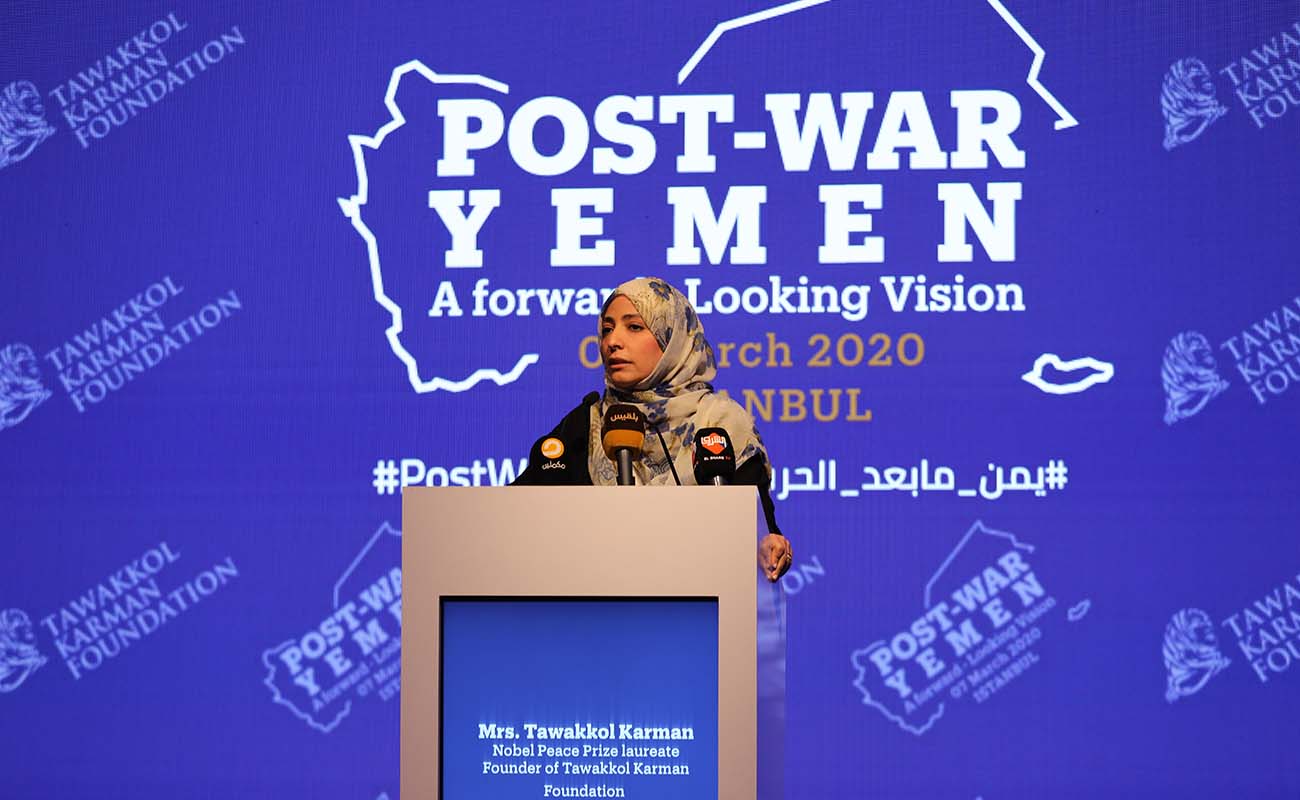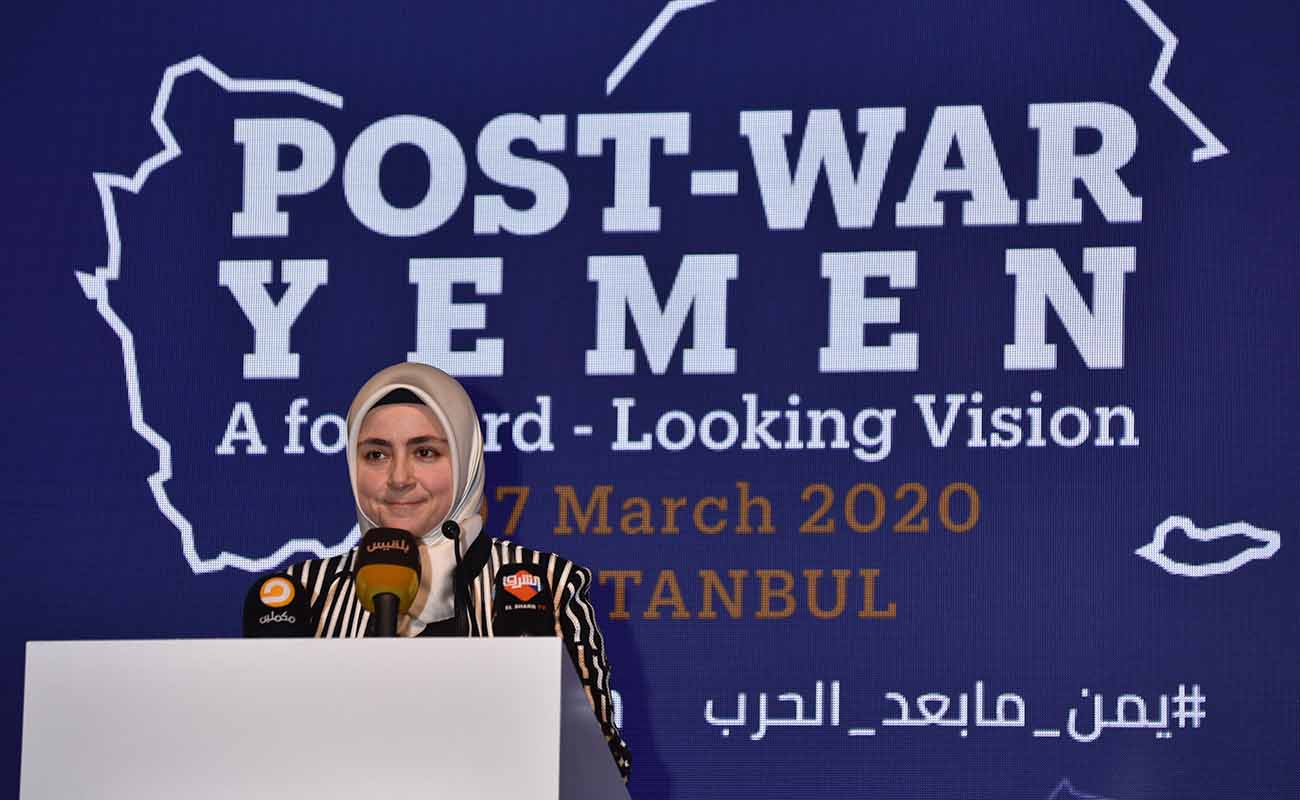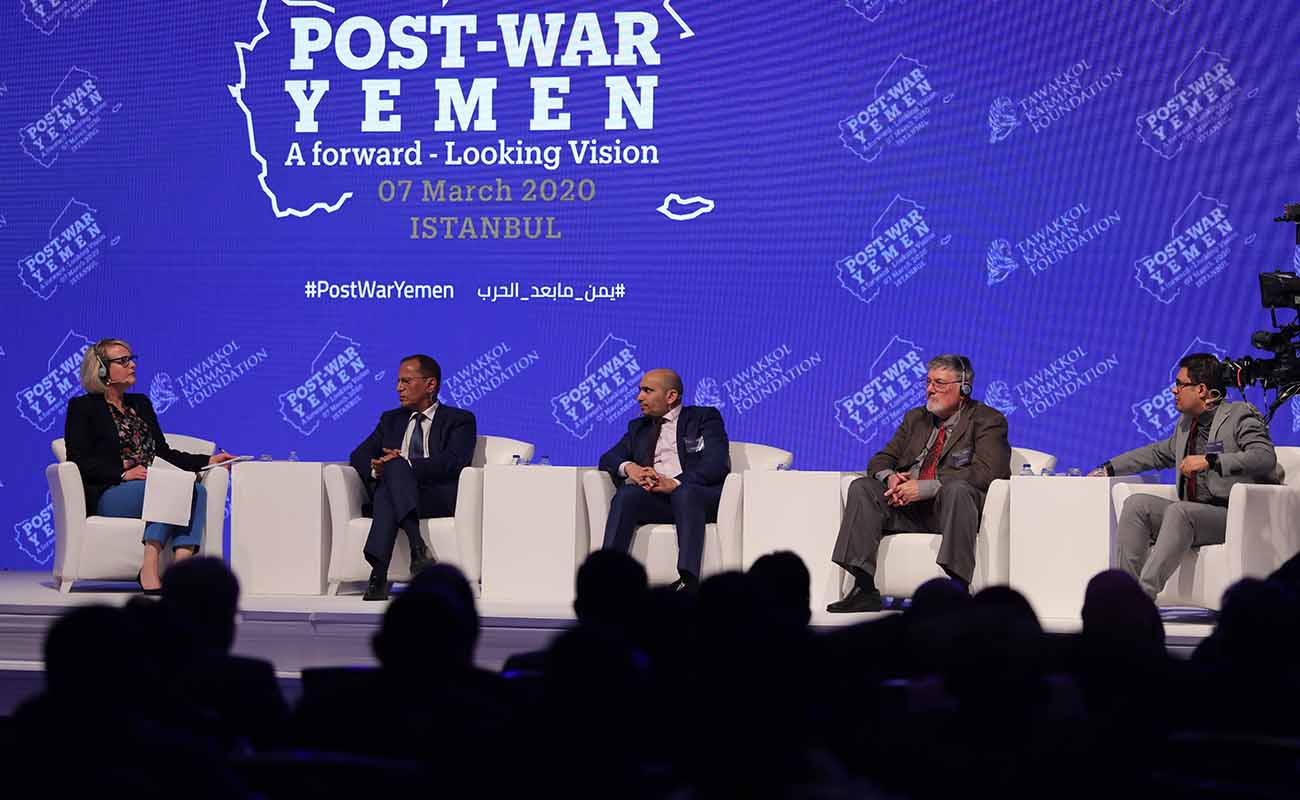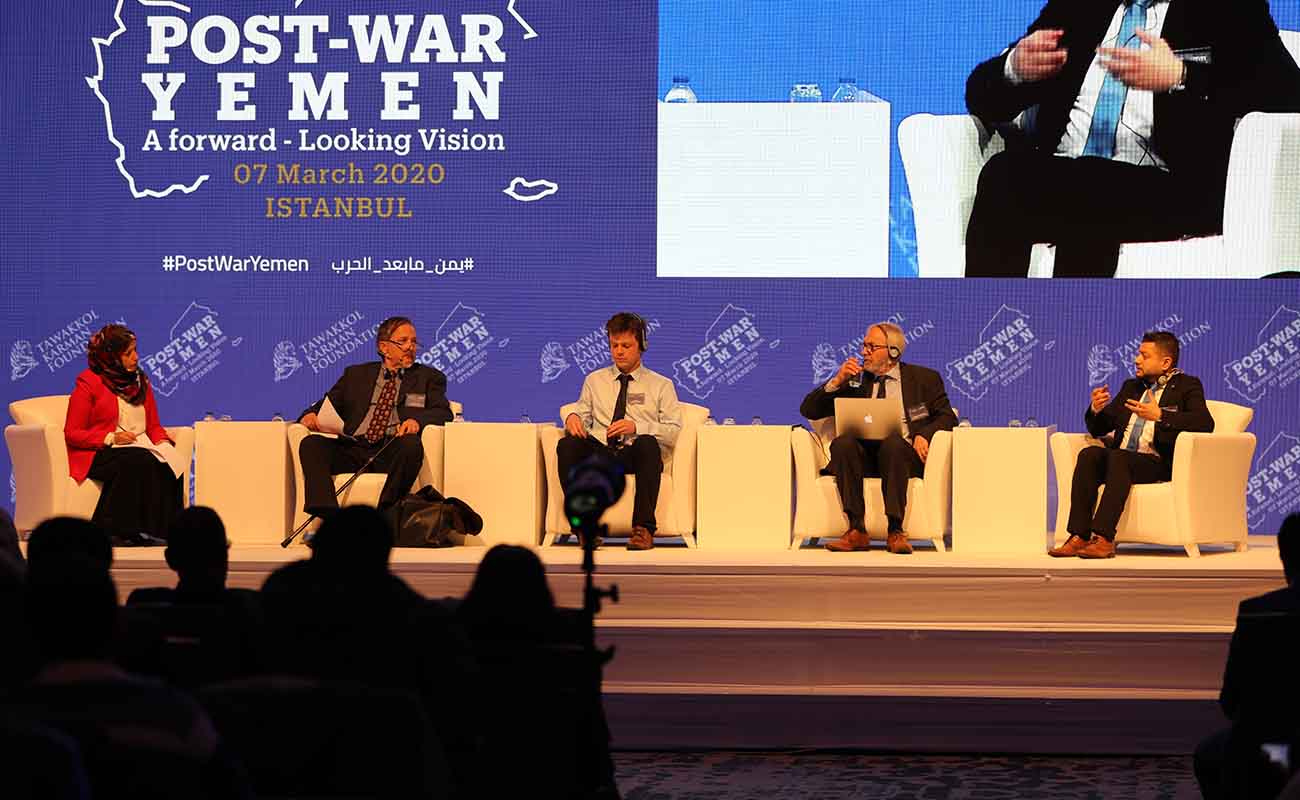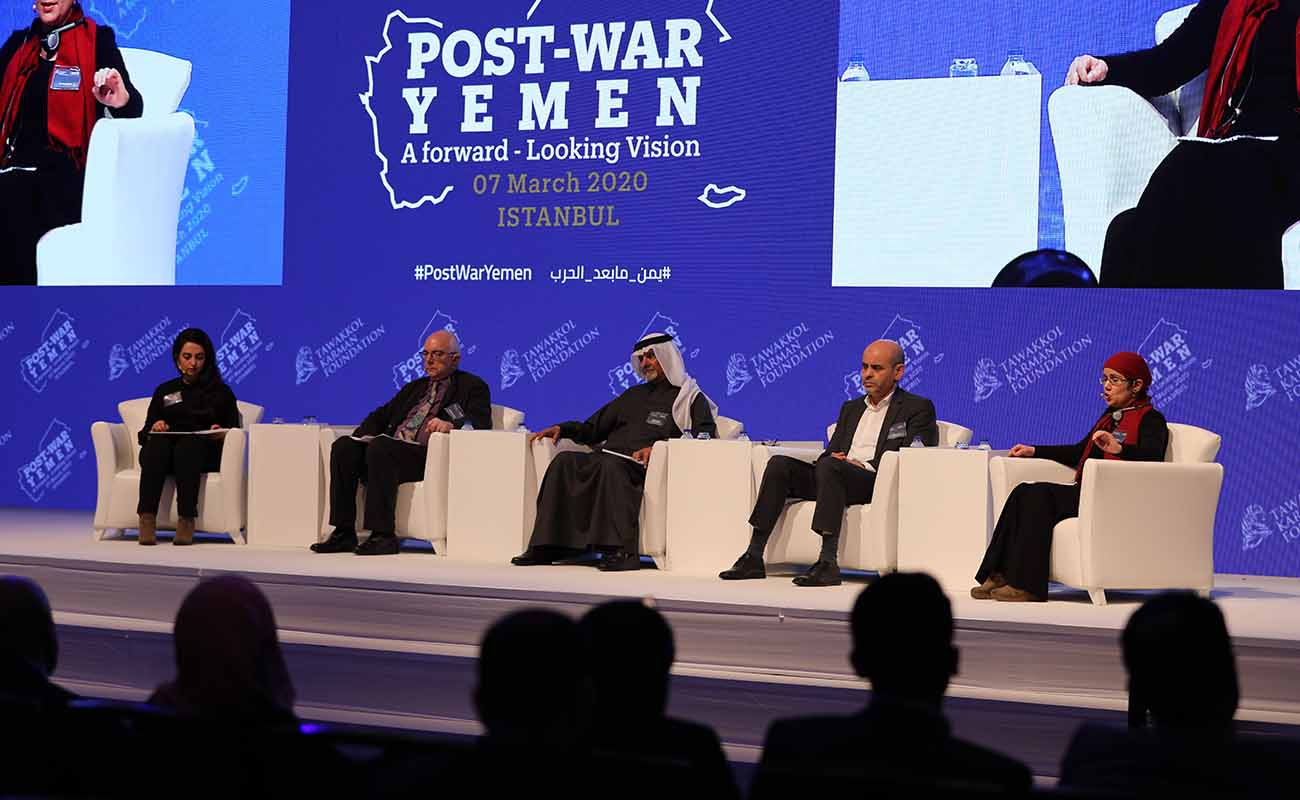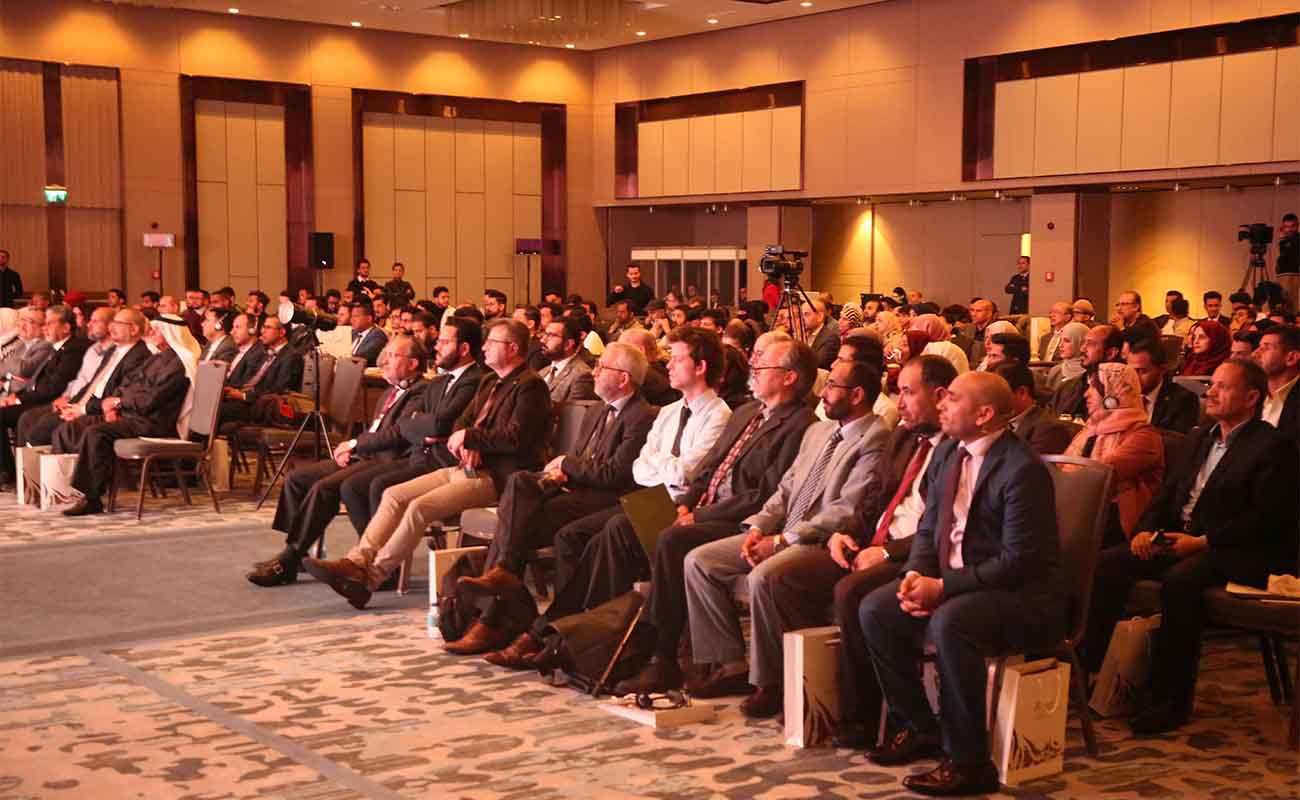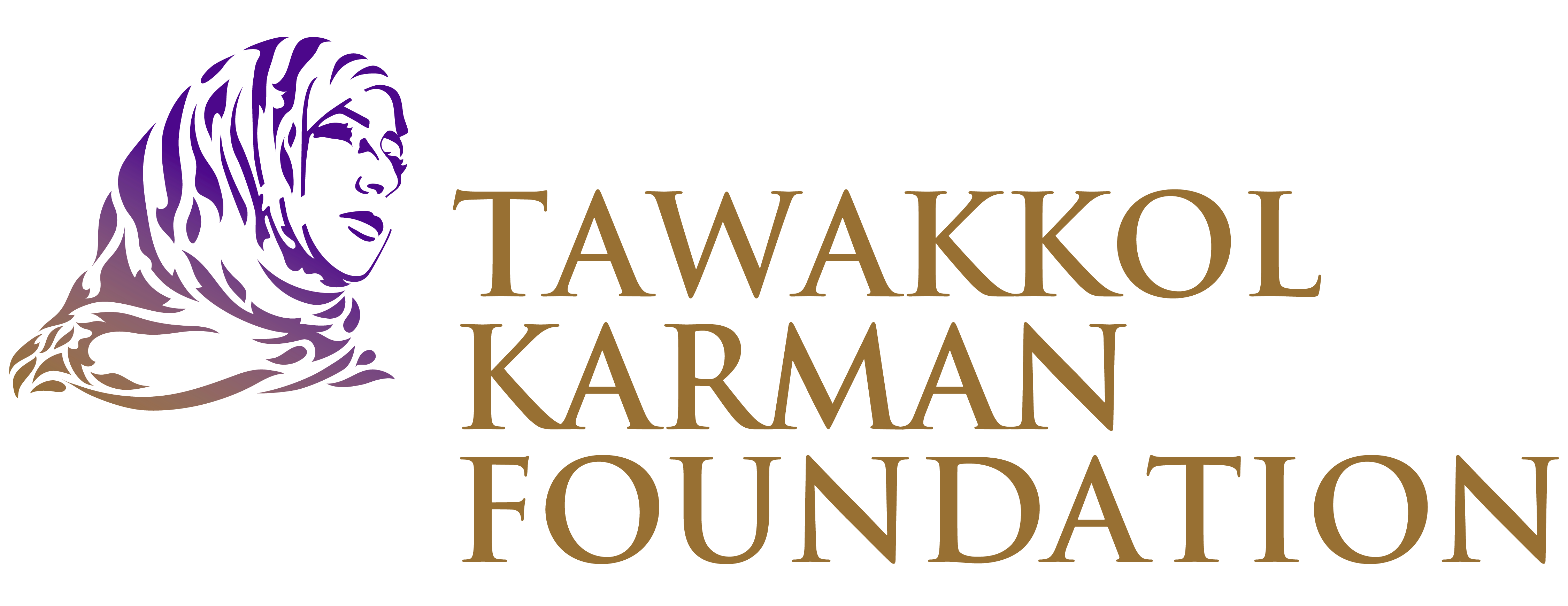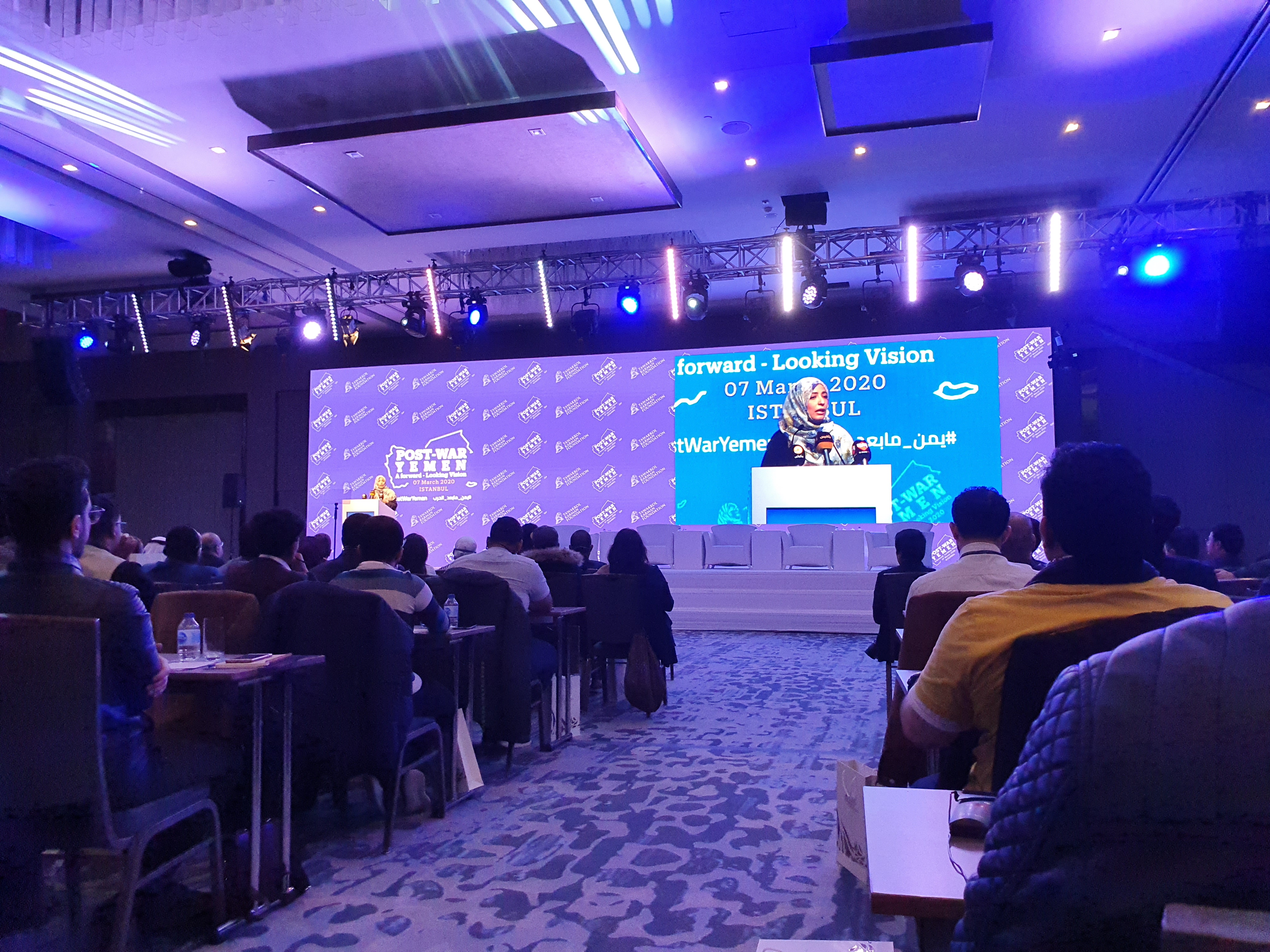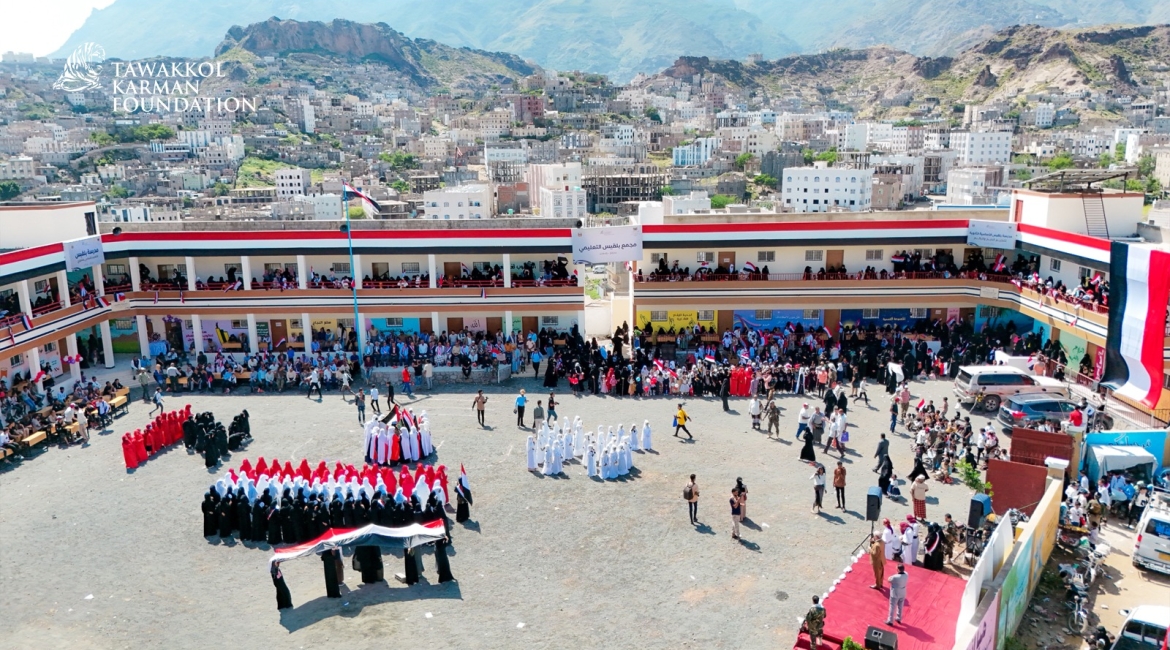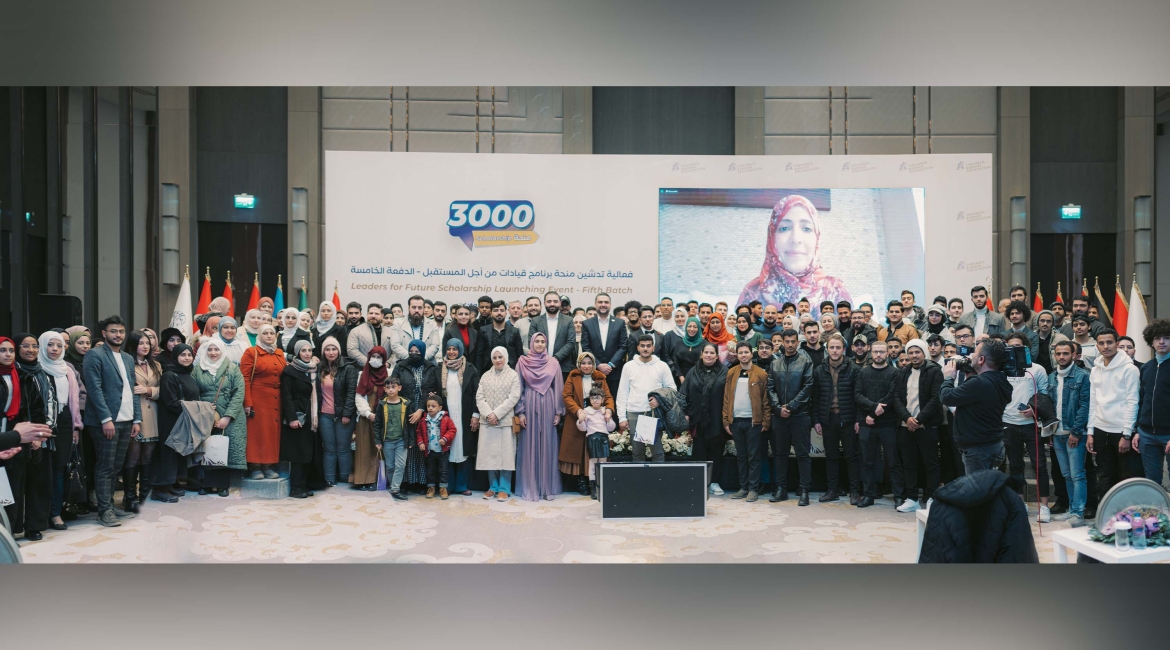Post-War Yemen..A forward-Looking Vision
Ms. Tawakkol Karman’s speech
Nobel Peace Prize laureate
Founder of Tawakkol Karman Foundation
TUĞBA IŞIK ERCAN
Akparti MKYK MEMBER and Vice President of Foreign Relations Speech
First Session
“Possible scenarios for the end of the war, the form of the state and system of government in light of the perceived end of the existing conflict”
Second Session
"The future of regional and international influence in post-war Yemen"
Third Session
"Post-war priorities, namely transitional justice as an entry point for ending the conflict and reconstruction"
Yemen Post-War Conference
It has been six years since the military takeover by the Houthi militia, the overthrow of the state, and the Houthi's control of the capital Sanaa in 2014. Followed by the intervention of the Arab coalition, led by Saudi Arabia (KSA) first aimed to stop the Houthis and re-establish legitimate authority and government.
Since then, Yemen has plunged into chaos and the military control map on the ground has changed, between large parts of northern Yemen is controlled by Houthis and others in the south packed by Emirati-backed militia, followed by the control of the temporary capital Aden, legitimate government as its headquarters.
The Yemeni government's control of space eroded, while the coalition played a role in trimming its claws, pushing it abroad, and military operations and arms supplies to various parties escalated. The conflict is prolonged, and its local proxies strengthen with time as it continues to claim lives, destruction, and all that caused the humanitarian crisis that ranks as the worst in the world.
This gradual curve of the state fall, followed and its mobilization, division, and nets of internal tyranny and external alienation entrapment, led to the curbing of Yemenis will and the absence of their future local, regional, and international vision. In this regard, TKF organized a conference titled Yemen Post-War: A Forward-looking Vision. The conference aimed to discuss the Yemen file and the post-war perceptions, with the participation of many thinkers, researchers, and developers.
In her opening speech, Nobel Peace Prize laureate, Mrs. Tawakkol Karman called on various Yemeni forces on the battlefronts, the governorates governors, and the resistance forces to announce an internal field leadership tasked with liberating Yemen from militias, guardianship, and occupation.
Karman said, "There is a power vacuum in the government, and the controls set by the Saudi ambassador and signed by Hadi and his prime minister do not represent Yemen or its legitimacy, stressing that President Hadi is impotent, imprisoned, and lacks freedom and will.”
Karman added, “Stopping the war in Yemen is only a step in building a real and sustainable peace, and called on the Kingdom of Saudi Arabia to provide guarantees to lift its guardianship over Yemen and to commit to building what was destroyed by the war, of which Saudi Arabia is a part”
Karman Al-Arabiya pointed out that the partial agreements have lengthened the war and ignored the primary case which is Yemen, and she emphasized that Yemen is resisting the imam and division and will not submit to the guardianship of Saudi Arabia and the UAE.
Karman continued, “The war will not end with deals between warlords who are not interested in making Yemen one strong and sovereign state, and that it was the Houthi militia that started the war and they do not show any acceptance of peace calls for peace, calling on the international community to pressure them to return to the political track.”
For her part, Tuba Arjan, deputy head of foreign relations in the Turkish Justice and Development Party, affirmed the support of the Turkish Republic for the united, sovereign Yemeni state, noting that Turkey is keen to alleviate the humanitarian crisis experienced by millions of Yemenis.
TKF organized the conference and divided it into three sessions. In the first session, participants discussed the possible scenarios for the end of the war, the state shape, and the governmental system; in the context of post-conflict Yemen. The symposium witnessed the participation of Ahmed Al-Sayyad, the former Yemeni ambassador to UNESCO, Ibrahim Al-Qatabi, activist and political analyst, J.E. Peterson, a researcher at the Center for Middle Eastern Studies at the University of Arizona, and Marwan Al-Ghafuri, a cardiologist and Yemeni novelist.
The symposium witnessed the participation of Ahmed Al-Sayyad, the former Yemeni ambassador to UNESCO, Ibrahim Al-Qatari, activist and political analyst, and JE Software for translations, the second session discussed the Future of Regional and International Impacts in Post-War Yemen with the participation of Ali Al-Absi, researcher and political analyst, Stephen W. Day, professor of international affairs at Lawrence University Jonathan Harvey, journalist, and researcher in Conflict and geopolitics, and William Law, editor-in-chief of ‘Arabs Digest’ and a former BBC correspondent.
The third session discussed the Post-War priorities and suggested that transitional Justice can be the first step to ending the Conflict and reconstructing what has been destroyed in Yemen. This included both Political and Legal responsibility. The three main speakers of the symposium were Abbas Erwa, a Physics professor, and the founder of the Cordoba Peace Institute in Cairo- Geneva, Franck Merrier, a senior researcher at the French National Center for Research Jamila Obaid, a Yemeni journalist specializing in economics and Mohammed Al-Misfer, a diplomat and professor of political science at Qatar University.
The sessions were full of enriching questions from the participants who discussed ways to stop the war in Yemen, re-establish the Yemeni state, and rebuild what the war destroyed in Yemen in the past five years.
